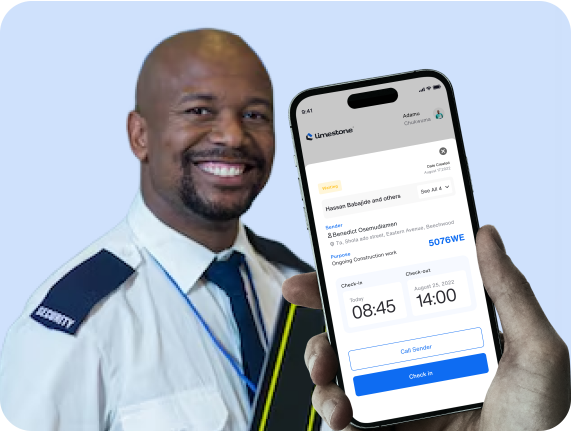
Personal safety is very important for surviving the exciting new NYSC adventure. Why? Because it empowers you with the knowledge to confidently face your service year, while feeling and staying safe. It’s a dream that can become your reality.
And this blog post is your guide to achieving it. We’ll empower you with essential personal safety tips to survive your service year fearlessly and with peace of mind. Let’s get into it!
Personal Safety Tips When in Rural Areas
Leaving the city lights for an off-the-grid location? Rural areas in Nigeria can offer unique enjoyable experiences, but they also come with security risks such as potential encounters with wildlife, poor road networks, limited security presence, and a lack of reliable emergency services.
Here’s how to stay safe while embracing the unique fun the rural life can offer:
- Be Aware (Shine Your Eye!): You need to be extra observant in your new rural community. Pay attention to your surroundings, trust your gut feeling if something seems off, and identify safe zones (like the friendly mama put’s shop and local restaurant) where you can relax and recharge.
- Stay Connected (No Ghosting Allowed!): Your phone and the community are your lifelines. Keep your phone charged and with you at all times. Also, inform a trusted friend, fellow corper, or neighbor about your whereabouts, especially when heading out alone. Building these relationships can create a safety net and provide valuable local insights.
- Secure Valuables: Leave those expensive gadgets and jewelry at home, corper. And, if you must bring them, keep them hidden and be mindful of pickpockets, especially in crowded areas like the rural markets or community festive gatherings. Remember, “prevention is better than cure!”
- Night Safety (Don’t Be a Night Owl): Limit those late-night adventures, especially in poorly lit local areas. If you need to step out, go with a trusted friend, notify another corper of your plans, and ensure your security app is open and ready to be used. Don’t know which security app to use? See how other corpers are using the Limestone app to connect and stay safe with peace of mind!
Personal Safety Tips for Knowing What to Do in Emergencies (Stay Cool, Corper!)
Emergencies can happen when you least expect them —a sudden accident, a health scare, or even an unforeseen security threat. Imagine being caught in such a situation being scared, panicking, unprepared, and not knowing what to do.
Corper, don’t let these critical moments catch you off guard! We’ve got you covered! Here is how to prepare for them:
- Develop a Plan (Be a Strategist): Take a moment to think about potential emergencies you might encounter, such as accidents, natural disasters, or security threats. Formulate a plan for each scenario, considering where you would go, who you would contact, and what actions you would take.
Don’t know where to start? Download our comprehensive guide on emergency preparedness to help you create a strategy that works for you.
- Know How to React (Be a First Responder): Brush up on basic first aid skills and learn the steps for handling common emergencies. Whether it’s stopping bleeding, performing CPR, or calming someone in distress, these skills can save lives. Also, keep the numbers of local authorities and emergency services within reach. Speed matters when it comes to emergencies.
- Stay Informed (Knowledge is Power): Familiarize yourself with local emergency numbers, the locations of nearby hospitals and clinics, and any available resources in your area. Having a plan and knowing how to react can provide valuable peace of mind, allowing you to focus on your personal growth and having fun during your service year.
- Have a Trusted Security BackUp: What if you get lost on the local farm? The Limestone Panic Alert feature can help. With a single tap, you can share your live location and send a digital cry for help to your emergency contacts. Download the Limestone app now and activate this feature for peace of mind throughout your service year.

Personal Safety Tips for Navigating Public Transport
From hopping on an Okada, bus to catching flights, public transportation is a vital part of the NYSC adventurous experience. While most journeys, especially flights, are usually smooth, it’s wise to be prepared for potential security hiccups.
Here are key tips to ensure safe and hassle-free travel to and from your camp or Primary Place of Assignment (PPA):
- Safe Travel Practices (Ride Smart): Whether you plan to board a bus, train, or airplane, be aware of your belongings and surroundings. Prepare for security checks by keeping all necessary documentation and identification close. Opt for reputable transportation providers and avoid overcrowded or poorly maintained vehicles. If you’re traveling at night, stick to well-lit and busy bus stops, airports, or train stations to reduce risks.
- Prepare for Travel Emergencies (Stay Calm Under Pressure): Vehicle breakdowns, robbery, accidents, or even harassment can happen. So, always carry emergency contact numbers and have a travel emergency kit, including a charged power bank, some cash, and a flashlight. For swift security response, learn how to activate the Limestone Panic Alert feature. With just one tap, you can share your live location with the emergency contacts for swift assistance.
- Stay Safe in Unfamiliar Places: When exploring a new town, village, or community, ask for directions from trusted sources like officials or shop owners. Too shy to ask? Use security social apps like the Limestone StoneCircle feature to stay updated on happenings in your area and connect with fellow corpers for local insights and support.
Basic First Aid Techniques for Ensuring Personal Safety
Knowing basic first aid can be a lifesaver, literally! Whether it’s a minor scrape during CDS or a more serious emergency, being equipped with first aid knowledge can make a significant difference.
- Common First Aid Practices (Corper Medic): Those CDS activities and assigned tasks at your PPA can get intense! Familiarize yourself with basic first aid for common injuries like cuts, burns, sprains and insect bites. Knowing how to clean a wound, apply a bandage, or soothe a burn can prevent minor mishaps from turning into major problems.
- First Aid Kit Essentials (Your Mini Clinic): Pack a compact first aid kit with essentials like bandages, antiseptic wipes, pain relievers, and any personal medications you need. Keep it readily accessible in your bag or at your residence.
- Seek Professional Help (Call the Pros): If an injury is serious or you’re unsure how to handle it, don’t hesitate to seek professional medical help. Remember, corper, sometimes even the best DIY first aid needs a doctor’s touch. Your health safety is our priority.

Conclusion
By applying the personal safety tips we’ve shared in this post, along with the Limestone app and its awesome security features, you can navigate your service year with confidence and peace of mind.
Ready to fearlessly embark on your NYSC adventure with safety and security as your companions? Don’t miss out on more valuable tips– subscribe to the Limestone YouTube channel today!
And hey, while you’re there, check out our podcast for inspiring true NYSC stories from corpers who were once just like you.

